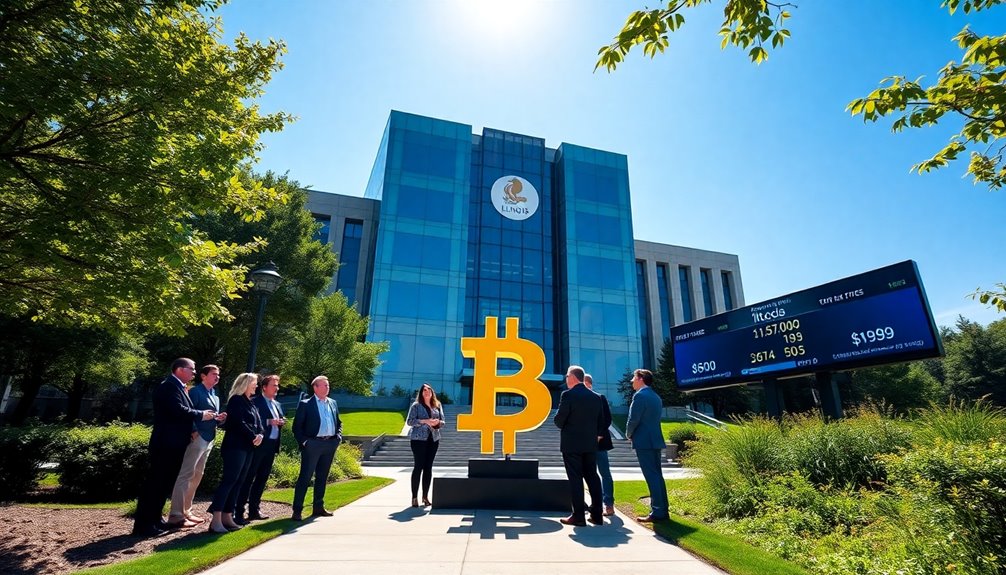You might find it intriguing that Illinois is on the verge of becoming the first state in the U.S. to establish a state-owned Bitcoin Reserve. With legislative proposal HB1844, the state plans to create a Bitcoin Strategic Reserve Fund, potentially changing how states manage financial assets. But what does this mean for the future of cryptocurrency and state finances? The implications could extend far beyond Illinois, raising questions about the broader impact.

The Illinois Bitcoin Reserve is set to make waves in the financial landscape as lawmakers propose HB1844, which aims to establish a "Bitcoin Strategic Reserve Fund" within the state treasury. This proposal, if approved, will allow Illinois to hold Bitcoin as a financial asset for at least five years. After that period, the state can evaluate its options, including transferring, selling, or converting the Bitcoin into other cryptocurrencies. Such a move places Illinois at the forefront of a growing trend, following similar initiatives in states like Arizona and Texas.
As you delve into the implications of this legislative proposal, you'll find that it comes at a time when blockchain technology is gaining traction in Illinois. The state recently released a comprehensive report that details its potential applications within government services. Six successful blockchain pilot programs have already showcased the technology's ability to enhance security and efficiency, providing a glimpse into the potential for blockchain in state government.
However, challenges like energy consumption, scalability, interoperability, and privacy continue to loom over its widespread adoption.
With Bitcoin's notorious volatility since its inception in 2009, it's crucial to consider the underlying technology—blockchain—which offers secure transaction capabilities. The energy demands of Bitcoin mining raise environmental concerns, an issue that has prompted academic research in Illinois. Professors at Illinois Tech have been studying the factors that influence Bitcoin's returns, highlighting that this asset is largely detached from traditional economic fundamentals, making it highly speculative.
Establishing a state-owned Bitcoin reserve could position Illinois as a leader in the national landscape, encouraging other states to consider similar measures. This initiative reflects a growing trend among states exploring Bitcoin reserves, which could have significant implications for financial markets and economic policies.
However, achieving nationwide approval will require time and regulatory clarity, a challenge that lawmakers and stakeholders will need to navigate carefully.
The future of the Illinois Bitcoin Reserve remains uncertain yet promising. If successful, it couldn't only bolster the state's financial standing but also inspire a wave of similar initiatives across the country. As you keep an eye on developments surrounding HB1844, remember that Illinois is stepping into uncharted territory, one that could redefine how states interact with digital currencies and blockchain technologies.
Your engagement with this evolving narrative will be crucial as the landscape continues to shift.








